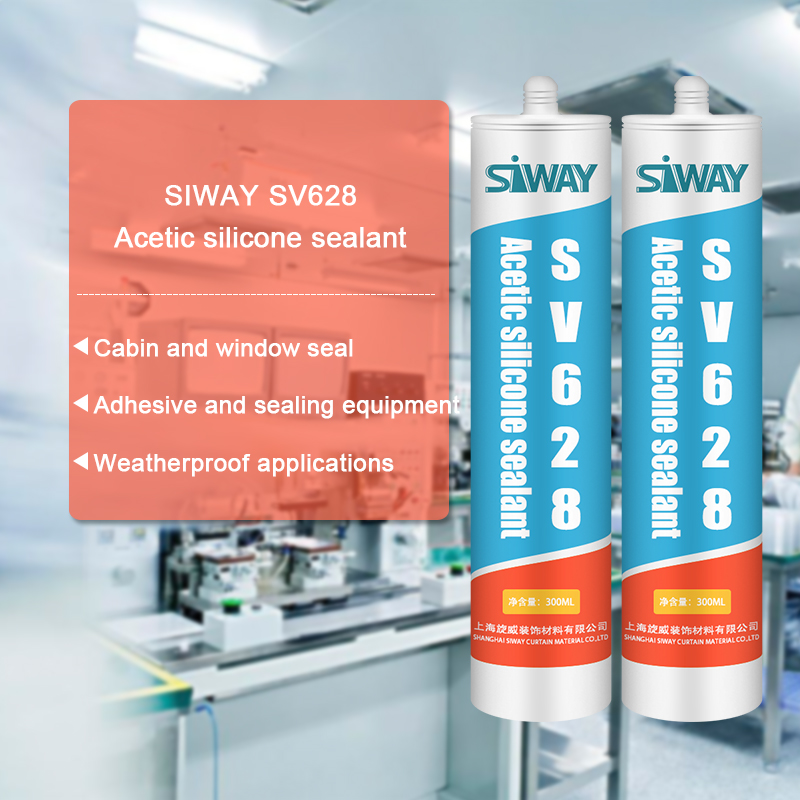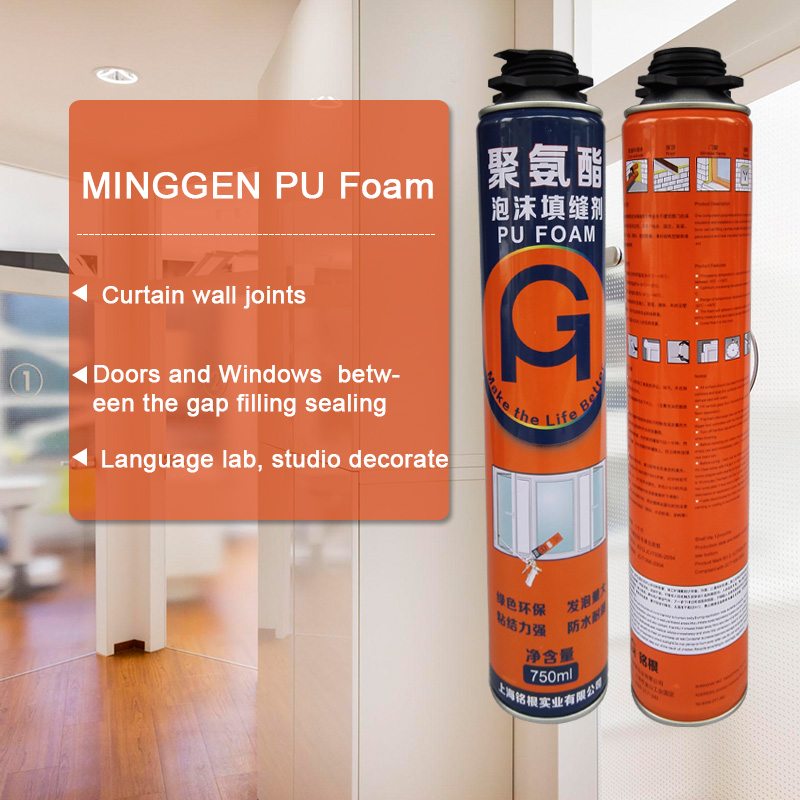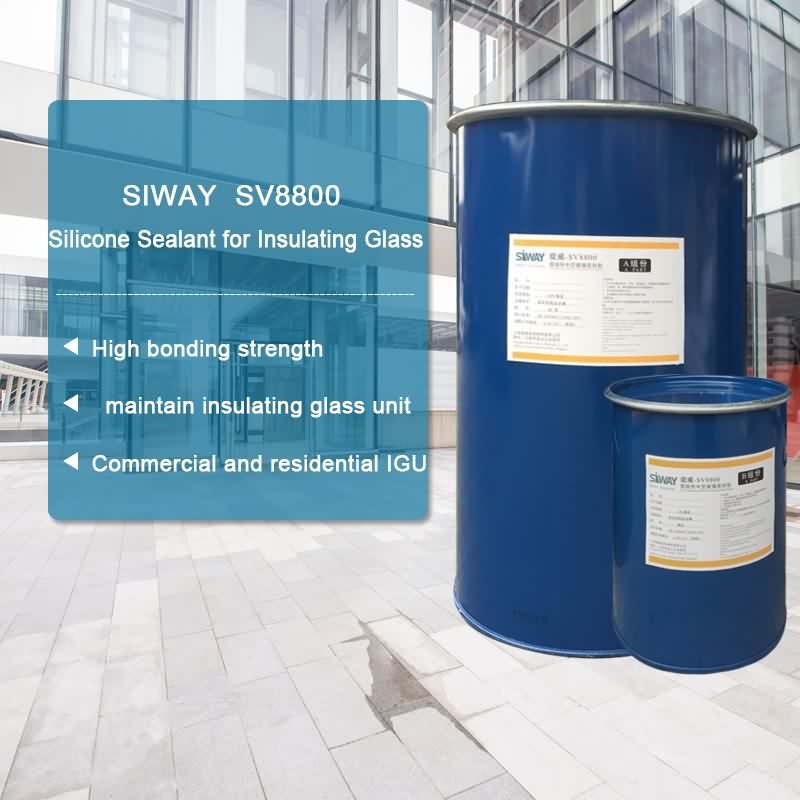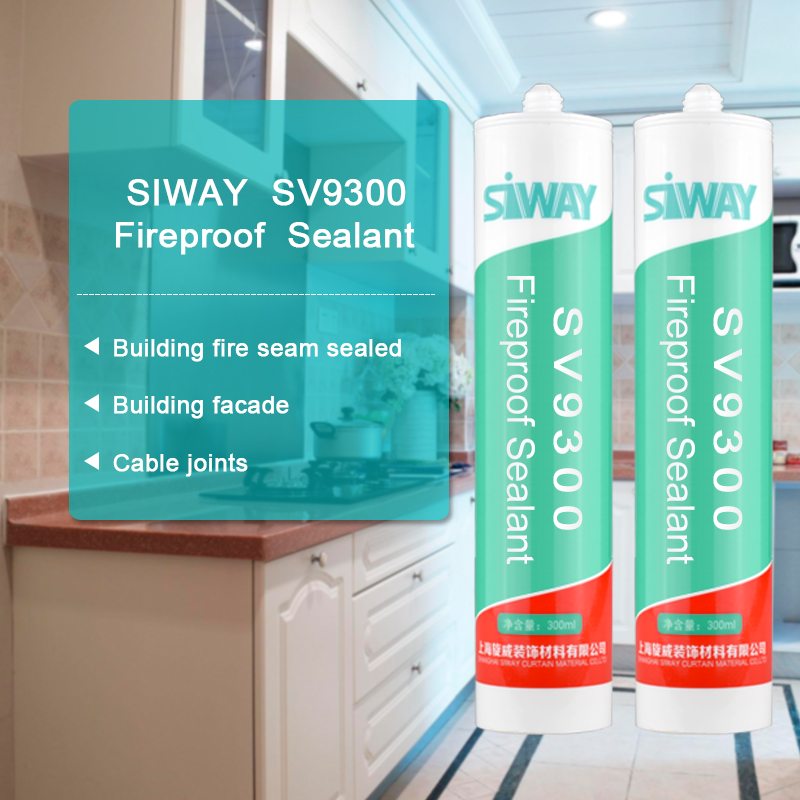15 Years Factory wholesale SV-628 Acetic Silicone Sealant Export to Haiti
Short Description:
Description It is one- component, moisture curing acetic silicone sealant. It cures fast to form a permanently flexible, waterproof and weather resistant silicone rubber. Where to use Widely used in construction, glass assembling and home decoration.SV-628 has good adhesion to most common building materials e.g. glass, ceramic, tile, wood and fiber glass. Key Features 1. 100% silicone 2. Easy to apply 3. Excellent elasticity 4. Excellent adhesion to most common building materials ...
We thinks what customers think, the urgency of urgency to act in the interests of a customer position of principle, allowing for better quality, lower processing costs, prices are more reasonable, won the new and old customers the support and affirmation for 15 Years Factory wholesale SV-628 Acetic Silicone Sealant Export to Haiti, We will supply best quality, the most market competitive price, for every new and old customers with the most perfect green services.
Description
It is one- component, moisture curing acetic silicone sealant. It cures fast to form a permanently flexible, waterproof and weather resistant silicone rubber.
Where to use
Widely used in construction, glass assembling and home decoration.SV-628 has good adhesion to most common building materials e.g. glass, ceramic, tile, wood and fiber glass.
Key Features
1. 100% silicone
2. Easy to apply
3. Excellent elasticity
4. Excellent adhesion to most common building materials
5. Outstanding weatherproofing capability
6. Fast Curing
Basic Application
1.All kinds of glass curtain wall weatherproof seal
2.For metal (aluminum) curtain wall, enamel curtain wall weatherproof seal
3.Joint sealing of concrete and metal
4.Roof joint seal
Technical data sheet
Technical data sheet for reference,
| Test standard | 1000 | |
| Appearance | ISO 11600 | Have no grain, no agglomerations |
| Extrudability,g/ml | ISO 8394 | 450 |
| Tack Free Time,min | ASTM C 679 | 20 |
| Density,g/cm3 | ISO 1183 | 1.0 |
| Slump,mm | ISO 7390 | 0 |
| Heat weight loss,% | ISO 10563 | 7 |
| Ultimate Tensile Strength,MPa | ISO 8339 | 0.4 |
| Ultimate Elongation,% | ISO 8339 | 150 |
| Ultimate Shear Strength, MPa | ISO 4587 | N/A |
Certification
JC/T881-2001 20LM; GB/T14683-2003 20LM.
Color
clear, black, silvery gray, white, brown
Package
300ml in cartridge * 24 per box, 590ml in sausage *20 per box
Shelf life
12 months
Note
If you want the TDS or MSDS or other details, please contact with our sales person.
This video was published May 31, 2007 & was never added to YouTube…until today!
In this episode, I show you the process of making your own vacuum bag. There are two materials to choose from, polyurethane and vinyl. My old bag is made from vinyl but this time I am going to try my hand at polyurethane, which is supposed to be more durable. My source for all for all of the materials and the instructions is one of my favorite sites on the web, https://veneersupplies.com Not only does Joe provide detailed tutorials and information on https://joewoodworker.com/veneering/makingbags.htm making your own vacuum bag and https://joewoodworker.com/veneering/decidingtobuild.htm making your own vacuum press, he also provides all the materials you need to do it. He even sells pre-made bags.
The results of this little project are not exactly what you might expect. It was quite a learning experience. If you are considering making your own bag, this video is a must see!
Check out the original post on our website for even more information & comments: https://www.thewoodwhisperer.com/videos/a-pressing-matter/
The Wood Whisperer is education and entertainment for the modern woodworker! Find more at https://thewoodwhisperer.com & don’t forget to subscribe to our YouTube channel!
Follow us on Twitter https://twitter.com/woodwhisperer
Like us on Facebook https://facebook.com/thewoodwhisperer
Learn more about our premium project videos at https://thewoodwhispererguild.com
Having already broken new ground in robotics with the development, last year, of a class of “soft”, silicone-based robots based on creatures like squid and octopi, Harvard scientists are now working to create systems that would allow the robots to camouflage themselves, or stand out in their environment.
As described in a paper published August 16 in Science, a team of researchers led by George M. Whitesides, the Woodford L. and Ann A. Flowers University Professor, has developed a “dynamic coloration” system for soft robots that might one day have applications ranging from helping doctors plan complex surgeries to acting as a visual marker to help search crews following a disaster.
In this video, Stephen Morin, a Post-Doctoral Fellow in Chemistry and Chemical Biology and first author of the paper, discusses the research and demonstrates how the system works.




